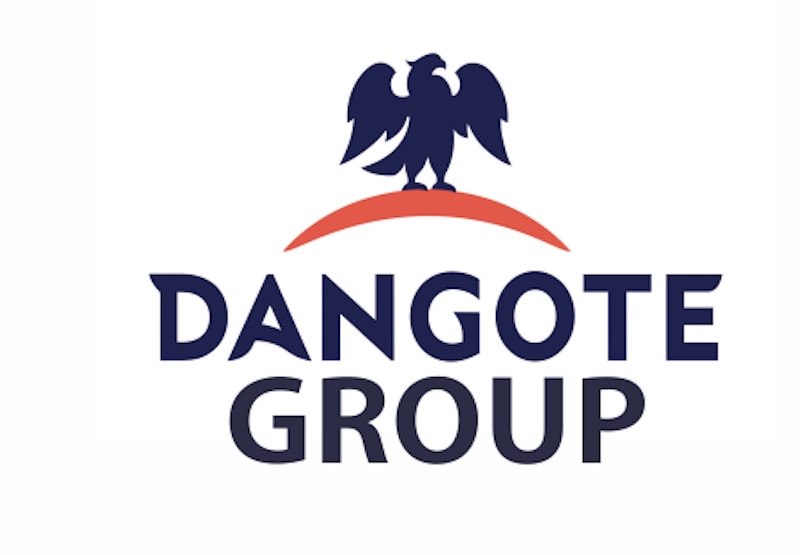Money market
FMDQ Exchange lists the Dangote N300.00bn Bonds

Following its commitment to facilitate growth and development in the Nigerian debt markets and the economy at large by continuously promoting an efficient, transparent, and well-regulated market, FMDQ Securities Exchange Limited, Nigeria’s largest securities exchange by turnover, through its Board Listings and Markets Committee, approved the listing of the Dangote Industries Funding PLC N187.58 billion Series 1 (Tranche A & B) and N112.42 billion Series 2 Senior Unsecured Bonds under its N300.00 billion Debt Issuance Programme on its platform. The Series 1 and 2 bonds were listed on FMDQ Exchange in November 2022 and March 2023, respectively.
Dangote Industries Funding PLC is a special purpose vehicle set up by Dangote Industries Limited (“Dangote Industries” or the “Issuer”) to raise finance through the listing of debt securities. Dangote Industries is a diversified and fully integrated conglomerate with an annual group turnover of over US$4 billion with vibrant operations in Nigeria and Africa across a wide range of sectors including cement, sugar, salt, condiments, packaging, energy, port operations, fertiliser, and petrochemicals.
To mark this noteworthy achievement, FMDQ Exchange, in keeping with its tradition, held a prestigious listing Ceremony at its offices on Wednesday, March 29, 2023. Present to celebrate the successful admission of the bonds on FMDQ Exchange were the issuer, Dangote Industries Limited, represented by the Group Managing Director, Mr. Olakunle Alake and other representatives of Dangote Industries.
Also present at the ceremony were the sponsors of the bonds and Registration Member (Listings) of FMDQ Exchange – Standard Chartered Capital and Advisory Nigeria Limited (Lead Sponsor to the Series 1 Bonds), Stanbic IBTC Capital Limited (Lead Sponsor to the Series 2 Bond), Absa Capital Markets Nigeria Limited, Afrinvest Capital Limited, Coronation Merchant Bank Limited, Ecobank Development Company Limited, FBNQuest Merchant Bank Limited, Futureview Financial Services Limited, FCMB Capital Markets Limited, Greenwich Merchant Bank Limited, Quantum Zenith Capital & Investments Limited, Meristem Capital Limited, Rand Merchant Bank Nigeria Limited, United Capital PLC and Vetiva Capital Management Limited (Co-Sponsors to the Bonds), as well as other parties to the issue.
Whilst welcoming the guests to the ceremony,the Managing Director, FMDQ Exchange, Ms. Tumi Sekoni represented by Senior Vice President, Business Development Division, FMDQ Exchange, Ms. Jumoke Olaniyan, congratulated the issuer and sponsors to the issue for achieving this milestone, noting that their decision to raise funds from the debt markets via the Exchange’s platform was testament to the highly efficient time-to-market and unrivalled listing and quotation service offered by FMDQ Exchange.
She also commended the sponsors of the bonds for their concerted efforts towards ensuring the success of the issuances. She reiterated the Exchange’s commitment to continue to innovate and provide efficient services, to support issuers and investors, towards achieving an operationally excellent and globally competitive debt market.
According to Mr. Olakunle Alake, whilst delivering the Special Address, “we thank the investor community, Securities and Exchange Commission, FMDQ Exchange, and our team of professional advisers led by Standard Chartered Capital and Advisory Nigeria Limited and Stanbic IBTC Capital Limited for ensuring successful outings on both our debut and subsequent bond issuances. The Series 1 and 2 bond issuances represent the largest aggregate local currency corporate bond issuances within a calendar year and under a single programme in the history of the Nigerian debt markets.
Proceeds of the series 1 and 2 bonds were dedicated to part-financing the Dangote Petroleum Refinery Project which is the initiative by Dangote Group to establish an Integrated Petrochemical Complex, and the largest Single Train Petroleum Refinery in the World.
Ultimately, the completion of the refinery would facilitate our ability as a country to meet our local demand for refined crude products, gearing us towards self-sufficiency.
He further stated that, “At Dangote, we remain resolute in our commitment to the Nigerian and African story and continue to demonstrate this through investments in projects and initiatives that directly improve the quality of lives of our people. Indeed, these are very exciting times for us as a business, and we would continue to welcome opportunities to work with stakeholders in the domestic capital markets, towards accelerating economic activities across Africa, whilst maximising stakeholder returns.”
Delivering the sponsor’s remarks, the Chief Executive Officer, Standard Chartered Capital and Advisory Nigeria Limited, Mrs. Yemisi Deji-Bejide, on behalf of the other sponsors to the Series 1 bonds, stated that “Standard Chartered Capital and Advisory Nigeria Limited is proud to have led this historic transaction.
The phenomenal success of this transaction reflects the strong credit quality of the issuer as well as the depth and resilience of the Nigerian domestic markets, despite the global market volatility.”
In the same vein, Stanbic IBTC Capital Limited, on behalf of the other sponsors to the Series 2 bond, through its Chief Executive, Mr. Funso Akere, said “Stanbic IBTC Capital Limited has a long history of partnership with Dangote Group and is delighted to have worked with Standard Chartered Capital and Advisory Nigeria Limited and other professional advisers to successfully raise the required funding for Dangote Industries.
“The Dangote refinery project is a game changer for Nigeria and we thank the board and management of Dangote Industries for trusting the team of professional advisers to deliver two successful landmark bond issuances.”
FMDQ Group, as Africa’s first vertically integrated financial market infrastructure (“FMI”) group, remains committed to providing first-class registration, listing, quotation and noting services, as well as integrated trading, clearing & central counterparty, settlement, and risk management for financial market transactions; whilst offering depository services and data and information services, across the debt capital, foreign exchange, derivatives and equity markets, through its wholly owned subsidiaries – FMDQ Exchange, FMDQ Clear Limited, FMDQ Depository Limited and FMDQ Private Markets Limited.
As a sustainability-focused FMI group, FMDQ Group, through FMDQ Exchange, operates Africa’s premier Green Exchange – FMDQ Green Exchange – positioned to lead the transition towards a sustainable future.
Money market
Lagos, India to boost trade partnership


The Lagos Chamber of Commerce and Industry and the Confederation of Indian Industry have signed an agreement to boost trade partnership.
In a memorandum of understanding in Lagos on Tuesday, both parties observed that the agreement would enhance avenues for effective collaborations.
Lagos Chamber of Commerce and Industry Deputy President Knut Ulvmoen said that the partnership’s focus was to leverage the trade capacity of both parties.
Ulvmoen said that both parties would explore capacity in Information and Communication Technology, medical, training, agriculture, manufacturing and export, among others.
He acknowledged what he described as robust and enduring trade relations between Nigeria and India.
He noted that over the years, both nations had witnessed a steady growth in bilateral trade with significant contributions from various sectors.
“Today’s meeting serves as a platform to, not only strengthen the existing partnerships, but also to forge new alliances that will contribute to the sustainable growth and development of both nations.
“Together, we must seize this moment to identify synergies, exchange expertise, and explore innovative solutions to economic challenges.
“Let us leverage the collective wisdom of our industries to develop actionable strategies that will drive inclusive growth, foster entrepreneurship, and enhance competitiveness,” he said.
Indian High Commissioner Shri Balasubramanian expressed his belief in shared growth and prosperity by both countries.
He also emphasised the importance of Nigerian-Indian business collaboration.
Balasubramanian stated that the government of India was making efforts to build capacity in trade, seeking private sectors’ partnership to identify projects that could be profitable to the trade structure of both countries.
“The opportunities existing between both countries are enormous as more than 155 Indian companies in Nigeria employ many Nigerians.
“From oil to steel; to healthcare, we are willing to link Nigerians up with their counterparts in India as we explore avenues of collaboration and partnership,” he said.
Money market
Naira remains at N1,350 as CBN targets FX inflow for liquidity boost


The naira on Tuesday steadied at 1,350 per US dollar on the parallel market, popularly called black market.
On Monday morning, the naira opened the foreign exchange (FX) market at the same rate before closing at N1,360/$1 on the same day at the black market.
At the official market known as the Nigerian Autonomous Foreign Exchange Market (NAFEM), the naira on Monday fell to 1,419.11 per dollar, the lowest since March 13, 2024 at the official FX market, following slowing inflows occasioned by the withdrawal of funds by Foreign Portfolio Investors (FPIs).
The intraday high closed at N1,451 per dollar on Monday, weaker than N1,410 closed on Friday. The intraday low also depreciated marginally to N1,060 on Monday as against N1,051/$1 closed on Friday at NAFEM, data from the FMDQ Securities Exchange indicated.
Dollars supplied by willing buyers and willing sellers declined by 52.16 percent to $147.83 million on Monday from $309.01 million recorded on Friday.
On day to day trading, the naira weakened by 5.63 percent as the dollar was quoted at N1,419.11 on Monday as against N1,339.23 quoted on Friday at NAFEM.
During the recent Monetary Policy Committee (MPC) meeting, Governor of the Central Bank of Nigeria (CBN), Olayemi Cardoso, emphasised the critical need to attract inflows to maintain liquidity in the foreign exchange market and stabilize the exchange rate.
In his statement, Governor Cardoso highlighted the importance of addressing inflationary pressures through exchange rate management to safeguard both price stability and long-term economic growth.
“Failure to tame inflationary pressure using the exchange rate channel may jeopardise not only price stability but also long-term growth,” stated Governor Cardoso.
Addressing concerns raised at the March 2024 MPC meeting, Governor Cardoso emphasised the need to reduce negative real interest rates to attract capital flows and enhance liquidity in the FX market. He stressed the significance of attracting capital flows through foreign portfolio investments and moderating exchange rate pressures to mitigate the impact of exchange rate pass-through on inflation, particularly in Nigeria’s import-dependent economy.
Commenting on the monetary situation, Mustapha Akinkunmi highlighted a decline in Nigeria’s reserve money by 24.91 percent to approximately N22.2 trillion by the end of February 2024. Despite this, broad money (M3) supply increased to N93.7 trillion, contributing to inflationary pressures. Nigeria’s external reserves also decreased to US$32.87 billion as of March 19, 2024, from US$33.68 billion in February 2024.
Although current reserves cover imports for 5.7 months of goods only and 4.5 months of goods and services, the country’s ability to repay short-term debts using reserves exceeded the threshold at 104.0 percent, he said.
According to him, the reserves-to-broad money ratio of 33.1 percent surpassed the 20.0 percent threshold, indicating Nigeria’s capacity to manage capital flows effectively.
Governor Cardoso’s emphasis on attracting inflows and managing exchange rate pressures underscores the CBN’s commitment to maintaining stability in the FX market and combating inflationary challenges in Nigeria’s economy.
Money market
Mobile channel most vulnerable, as financial institutions lose N17.67bn to fraudsters in 2023


Latest report by the Nigeria Inter-Bank Settlement System (NIBSS) on Annual Fraud Landscape (January to December 2023) has revealed that commercial banks, Point of Sales (PoS) operators and others lost about N17.67 billion to fraudsters in 2023.
The report published on its website on Monday identified mobile channels as the most vulnerable avenue for fraudsters notably Web and POS businesses.
The report noted that fraud perpetrated via mobile channels increased by five percent compared to the previous year.
It also suggested some of the regulations inputted to check fraud in financial institutions need detailed examination, modification and reinforcement.
According to the statistics revealed by the report, fraud count dropped by six percent to 95,620, as actual loss from fraud grew by 23 percent in 2023 when compared to 2022 with the first quarter being the month with the highest fraud volume in 2023 and the fourth quarter being the month with the highest fraud value.
It also disclosed that the month of May recorded the highest fraud count of 11,716, followed by February with 9,492 while October saw the highest actual loss in 2023 at N3.7 billion, followed by January with N2.7 billion. It said the count of Web Fraud decreased by 38 percent and ATM fraud recorded a 64 percent reduction from 2022 to 2023.
Also, in 2023, people aged 40 and above remained the primary targets of fraudsters, which NIBSS said signified a persistent focus on the targeting strategy of fraudsters.
“This sustained trend emphasises the enduring appeal of the demographic group as potential victims, reinforcing the need for continuous efforts to educate and protect individuals in this category from fraudulent activities,” NIBSS said.
In 2023, a total of 80,658 unique customers fell for the gimmicks of fraudsters which is four per cent less than 84,130 customers recorded in the previous year.
“This decline, though apparent, does not diminish the severity of the issue, urging the financial industry to remain vigilant, enhance security measures and collaboratively address the tenacious challenges posed by fraud,” it said.
-
capital market2 years ago
Rt.briscoe, FBNH, Others halts negative performance of stock market
-
Finance3 months ago
Court orders Sen. Victor Umeh to repay N136m bank debt to AMCON
-



 Abuja Update2 months ago
Abuja Update2 months agoUNDP, FG partnership needed to achieve inclusion, equity- Minister
-
Abuja Update1 month ago
Banks drive stock market performance with N147bn gain
-



 Business1 week ago
Business1 week agoTingo Group unveils Tingo Electric, Tingo Cola drink at Lagos launch
-



 Health2 weeks ago
Health2 weeks agoCapacity training will reduce migration of health workers- NPHCDA
-
News4 months ago
Oil thieves sponsoring malicious media campaign against Navy – Spokesman
-



 Infotech1 month ago
Infotech1 month agoWorld Backup Day: NITDA urges Nigerians to ensure backup of data
















